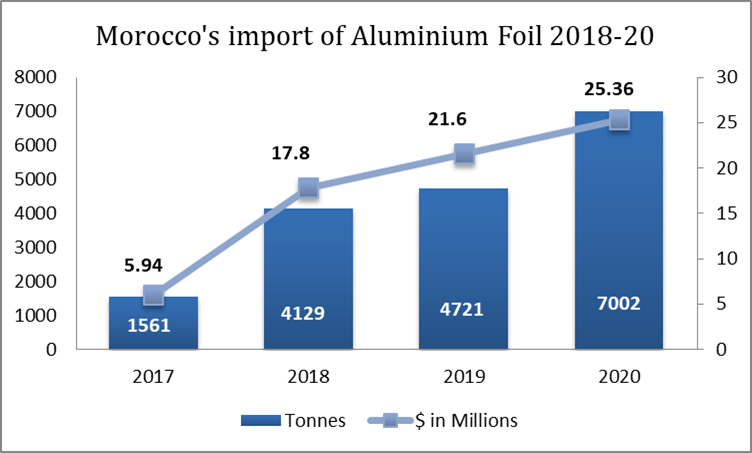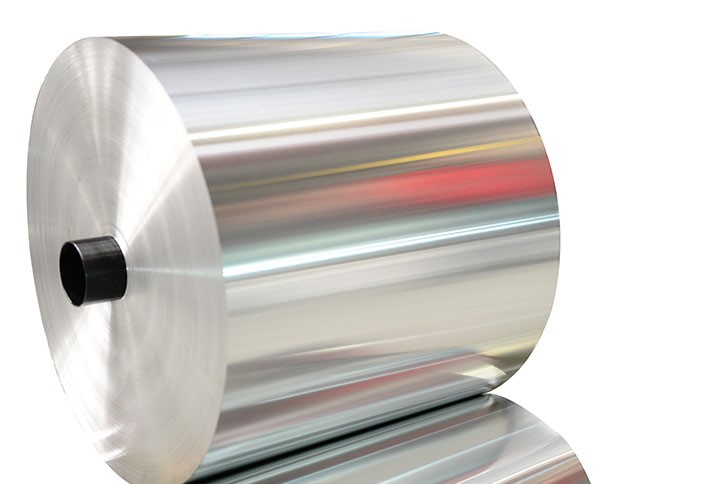

Morocco's economic freedom score is 63.3, making its economy the 78th freest in the 2020 Index. The economy is positioned to decline notably this year as domestic demand falters and the external sector is hampered by slack foreign demand for key exports. FocusEconomics analysts project the economy to contract 4.6% in 2020 and to expand 4.3% in 2021, which is unchanged from September’s forecast.

The North African nation’s aluminium foil import during 2017-19 was recorded at 10,411 tonnes and the foreign revenue expenditure occurred due to the import stood at $45.34 million. The import for 2020 is expected to reach at 7002 tonnes and expenditure to stand at $25.36 million. However, when the import and expenditure for 2020 get assorted with the existing three years, it signifies 17,413 tonnes and $70.70 million respectively.

Morocco’s import of aluminium foil in 2017 was recorded at 1561 tonnes and the expenditure remained at $5.94 million, whereas in 2018, the import saw growth by 164.50%, as the import volume rose to 4129 tonnes and expenditure shot up at $17.80 million.
The import for 2019 stood at 4721 tonnes, with growth recorded by 14.33% and the expenditure remained at $21.60 million.
Aluminium foil import for 2020 is expected to remain high at 7002 tonnes, a growth by 48.31% and expenditures to rise at $25.36 million.
Morocco’s major trading destinations for importation aluminium foils are Czech Rep., Bulgaria, Finland, France, Germany, Greece, Italy, Kuwait, Lebanon, Spain, Switzerland, Tunisia, Turkey, etc.
Responses








